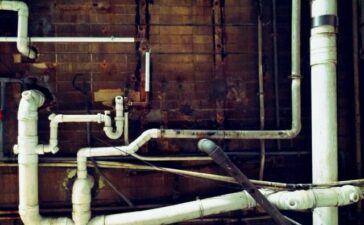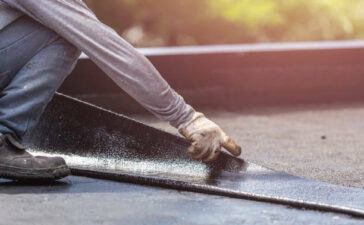A successful DIY project can leave you with a sense of accomplishment from solving a problem and saving the money it would have taken to hire a professional. However, sometimes the skills required are just beyond your level. There’s no shame in that! To help you avoid any DIY catastrophes, we made a guide on plumbing problems that you can help, and ones you should probably leave to the professionals.
Plumbing Jobs That You Can DIY
Some of the most common home plumbing issues can be fixed without hiring a professional because they don’t involve ripping up floorboards or opening a wall. If you come across one of these problems, chances are you can fix it yourself:
- Leaking Faucets
- Clogged Shower Drains and Sinks
- Installing/Replacing Shower Heads and Faucets
- Unclogging a Toilet
- Repairing a Running Toilet
These problems are fairly straightforward and won’t require specialized tools or training; however, to make it an easy fix, ensure that you don’t allow extensive damage to your water system before conducting repairs.
A simple case of leaking or clogging can very quickly become a serious plumbing issue if neglected- so perform regular inspection and when you come across a surface-level leak or clog, plug it or unclog immediately.
How To Perform Simple Home Plumbing Repairs
To get you started on your DIY efforts, we’ve outlined 5 plumbing issues that you may encounter, and a quick guide on how to solve them. But just in case one of these turns into a plumbing nightmare, it’s always wise to have a plumber that you can call for emergencies. Here’s a quick guide for simple plumbing DIY:
Replace the Parts Inside Your Faucets and Toilet
Replacing the internal components of your toilet or faucets can often lead to a mess if you make a mistake, but you’re not likely to cause any serious damage by taking apart a faucet cartridge or removing a toilet flapper. These components can wear out over time and cause leaks but the good news is, they are cheap and can be replaced quite easily.
Remove Clogs Without Using Chemicals
It is tempting to pour expensive chemicals down a drain when it gets clogged but this is hardly the most practical method. You can invest in a drain snake (they’re cheap!) or use baking soda and vinegar, with a little lemon juice, to unclog your pipes and leave them smelling fresh.
Inspect Your Shower Heads Regularly
Dripping shower heads can be repaired using thread tape. To do this, start by unscrewing the shower head and slowly wrap the tape around its perimeter before reattaching it. In the case of a clogged shower head, put it in hot water with a little vinegar and leave it for about an hour. This will displace the sediment and make it easier to brush it off or wash with a towel.
Apply Heat to Loosen Fittings
Older pipe fittings are often hardened and make it impossible to move the fitting to perform repairs. When faced with this, apply a bit of hit to the pipe dope to make it come loose. Take care not to damage the pipe and definitely don’t light an open flame next to a gas pipe.
We recommend carefully pouring hot water over the fixing and using heat resistance gloves (or tools) to turn and loosen it.
Inspect and Optimize Your Water Heater
If your water heater is functioning properly, you can reduce the thermostat to 115 degrees and still get enough hot water to supply your home needs. To prevent energy loss, keep your water tank insulated and check the tank for grime which collects on the bottom especially when using water from a well.
To do this, open the drain and empty the sediment into a bucket and put it back in place. Always turn off the water heater before performing any repairs.
Plumbing Jobs for Professionals
If your plumbing requires breaking into a wall or ceiling to access damaged pipes, it is best to leave the job to professional plumbers. Some plumbing issues are more complicated than usual and since you don’t want to cause more damage or risk injury, hire a contractor to look into the problem.
Here are some examples of plumbing issues you shouldn’t attempt to fix:
- Cracked Pipes
- Installation of Water Heaters
- Roots Damaging Drain Lines
- Bathroom or Kitchen Renovations
- Reorganizing Pipes
If your problem fits into this, call a professional immediately. They have the tools, the skills, and experience to handle the damage and will fix the problem without damaging any part of your plumbing or property.
We hope these tips helped you!






